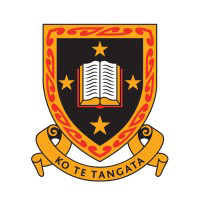Summer student / ākonga: Rust spore survival experiments Rotorua and Taranaki Maunga field work - Protecting Aotearoa
Based in Rotorua
Approximate dates - 1 December 2025 - 20 February 2026
Scion specialises in research, science and technology development for the forestry industry, wood products and wood-derived materials. We lead new technology development for renewables, bioproducts and energy and the establishment of a broader-based circular bioeconomy.
Scion hosts a number of summer students, each with differing specialities, from tertiary institutes across New Zealand at both our Rotorua and Christchurch Campus. The programme involves a student completing a 12-week, full-time, research project under the direction of Scion supervisors (allowing time for holidays over the Christmas and New Year). Students are able to gain hands on, paid, work experience in the field of which they are studying, where they get to work shoulder to shoulder with Scion's internationally recognised staff.
The primary objective of the work/project:
The objective of this summer student project is to complete a final atmospheric survival experiment. You will establish whether poplar rust spores can survive and germinate after experiencing the freezing temperatures and extreme UV levels exposed to during aerial dispersal.
Research Abstract
Protecting Aotearoa from wind dispersed pests project is researching the probability of pests surviving aerial transport from Australia. This work contributes to the overall aim to develop a model that predicts when pests might disperse to New Zealand via the aerial pathway so we can respond to incursions more effectively.
Protecting Aotearoa collaborates with Taranaki Maunga Project, therefore we are ideally seeking a motivated student / ākonga with whakapapa to Taranaki Iwi or strong links with Taranaki.
What the student will do
This summer student/ ākonga will get the opportunity to work in a paid position (excl. accommodation and travel) in a vibrant team with Ecology and Environment scientists at Scion, Rotorua, and experience first-hand varied and exciting research. The student will be taught to inoculate poplars and harvest poplar rust spores from plants, then settle spores onto slides using a spore settling tower. They will then conduct experiments on the rust spores given different durations of exposure within a UV array placed under controlled environmental conditions. At set times the spores will be removed and plated for germination. The student will learn to assess germination success and enter data for analysis. If the experiments with poplar rust go well, there may be opportunity to extend scope to test myrtle rust spores. From time to time during the placement the student will be asked to assist the Protecting Aotearoa field team or Taranaki Maunga Project staff to undertake field work doing surveillance for wind-borne pests or pathogens on and surrounding Taranaki Maunga.
Qualifications, skills and attributes needed:
No prior experience with plant pathology is required, but enrolment in a science degree or certificate course is expected. An interest in plant pathology or ecology in general, would be beneficial. Applicants will need to have excellent attention to detail, communication skills, and reliability.
This role will be varied between laboratory work and field work in Taranaki. Ideal applicants will be comfortable working in a laboratory using microscopes for several hours. They will also have the fitness and willingness to undertake fieldwork on uneven and strenuous terrain carrying equipment and samples.
Whakapapa to Ngā iwi o Taranaki or strong links to the Taranaki region are advantageous but are not essential.
Application Close Date - 12 September 2025



